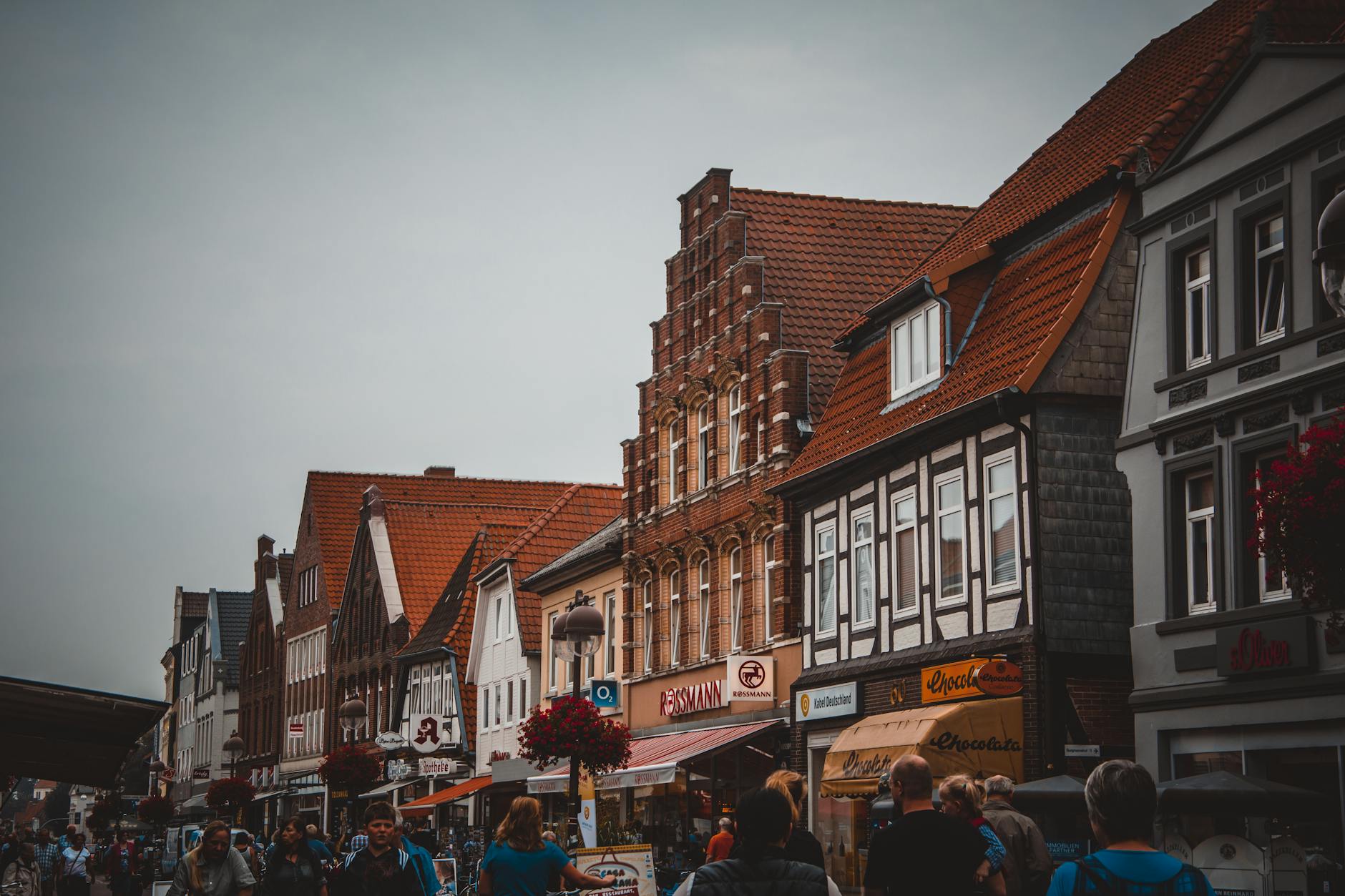How Australia's Baby Clothing Scene Is Shifting Toward Eco-Friendly Options

Shifting Trends in Baby Clothing
As someone passionate about the evolving landscape of fashion and activewear in Australia, it's thrilling to see how materials and designs for baby clothing are transforming. The vibrant collections showcased at Pitt Street Mall's retail hubs show just how diverse the offerings have become. What's intriguing is the shift towards eco-friendly materials, with designers placing sustainability at the forefront. This trend isn't confined to baby clothes—it’s reflected across the board, from plus size dresses to track pants, demonstrating a broader movement towards conscientious fashion choices.
Rise of Eco-Friendly Materials
Incorporating eco-friendly materials is crucial for modern baby clothing. These materials not only reduce environmental footprints but also offer the soft, gentle touch that parents desire for their children. Pioneering this space often involves experimentation with fabrics that are just as kind to the Earth as they are to delicate skin.
Sustainability in Design Innovations
Sustainability has become a core focus for innovative designs emerging from places like Paddington's trendy boutiques. Designers are creatively reimagining how garments can fuse style and practicality while being kind to the planet. This is where functional design meets ecological consciousness, striking the perfect balance for discerning parents.
Demand for Organic Fabrics
The demand for organic fabrics has skyrocketed, and it’s apparent that parents increasingly prioritise safe and sustainable options. Organic textiles not only promise safety but also bring comfort by reducing exposure to harmful chemicals. These trends resonate deeply with the ethos of creating beautiful yet mindful apparel, ensuring that every piece tells a story of care and innovation.
Key Eco-Conscious Materials
Pros of Organic Cotton
As I uncover the significance of organic cotton, it becomes clear why it's gaining traction among forward-thinking fashion designers in Sydney. This cotton is not only comfortable and breathable but is also produced without the harmful chemicals that make traditional cotton farming less sustainable. It's a great fabric choice for shapewear because it contours to the body naturally while allowing the skin to breathe. The shift towards organic cotton aligns with the dynamic spirit of Pitt Street Mall's retail scene, promoting sustainability without sacrificing style.
Benefits of Bamboo Fabric
Bamboo fabric is another game-changer, sweeping across stylish boutiques like those at The Intersection in Paddington. Its rapid growth and low water requirements make bamboo a superstar when considering eco-conscious choices. This material is not only soft and luxurious but also naturally antimicrobial and moisture-wicking, ideal for functional clothing, including a versatile onesie for everyday wear. Offering benefits beyond its tactile appeal, bamboo supports a sustainable fashion future.
Details on Recycled Textiles
Recycled textiles are revolutionising the local market, particularly at innovative fashion events hosted at Carriageworks in Eveleigh. These materials are crafted from previously used garments, reducing landfill contributions and conserving resources. The fashion industry is incorporating recycled textiles into collections, demonstrating that eco-friendliness can pair with practicality and style. By opting for these materials, brands can meet the growing demand from conscious consumers while placing a spotlight on the potential for recycling in fashion.
Manufacturing and Production
Eco-Friendly Production Techniques
Incorporating eco-friendly production techniques is essential in manufacturing sustainable baby clothing. Many designers and manufacturers are making strides by selecting processes that minimise waste and reduce pollution. This is evident in the use of digital printing, which circumvents water waste typical in traditional dyeing practices. By employing such innovative methods, the fashion industry not only cuts costs but also significantly minimises environmental impact.
Ethical Labor Practices
Ethical labor practices are integral to sustainability, ensuring that workers involved in production are treated with fairness and respect. This includes providing fair wages and safe working conditions, as well as avoiding exploitative labor. Companies committed to these values often partner with certified factories abiding by international labor laws. This dedication fosters a transparent supply chain, encouraging consumers to make informed purchasing decisions and align with values of equity and sustainability in plus size clothing production.
Minimizing Environmental Impact
The fashion industry is making strides towards limiting its environmental footprint. This involves comprehensive strategies like recycling water during production and using more sustainable resources. Additionally, reducing carbon emissions is prioritized by implementing energy-efficient technologies. As consumers, when we choose brands that embrace these practices, we support a shift towards a more sustainable world. This trend is particularly evident in the skort segment, which combines functionality with eco-conscious choices made visible in the lively retail scene at The Intersection, Paddington.
Consumer Preferences
Parents' Shift to Green Choices
Understanding the evolving landscape of consumer preferences can be both illuminating and inspiring. In recent years, a significant shift has occurred among parents towards more environmentally friendly products. This evolution is not just a trend but a conscious choice driven by the desire to reduce the ecological footprint of everyday purchases. As an entrepreneur, I have noticed that many parents are actively seeking out products made from sustainable materials and appreciate brands that prioritise eco-conscious practices. This shift provides a unique opportunity for those in the baby clothing industry to set themselves apart by offering innovative, sustainable options.
Style and Functionality in Demand
Today’s parents desire clothing that marries style with functionality. Products that offer features like easy diaper change, durability, and comfort are increasingly in demand. Items like leggings have gained popularity due to their versatility in design and practicality. It's crucial to combine aesthetics with practicality, ensuring that each piece not only looks good but also serves the needs of both children and parents. As someone passionate about design and fashion, this intersection excites me and drives my innovations.
Feedback from Young Parents
Gathering feedback from parents is invaluable in shaping the development of new products. Through various interactions, I've learned that parents appreciate products that simplify their lives without compromising on style. For instance, a dressing gown that can double as a swaddle has caught the attention of many by providing both function and fashion. Engaging with the vibrant community of creative thinkers in Sydney, especially in areas like Paddington, is crucial to understanding these ever-evolving consumer preferences.
Solutions and Innovations in Baby Clothing
Collaboration with Retail Giants
Sydney's vibrant retail scene, from the dynamic energy of Pitt Street Mall to the sophisticated elegance of The Intersection in Paddington, has become a breeding ground for innovation in baby clothing. Brands looking to penetrate the market are now actively collaborating with retail giants to create exclusive collections that resonate with eco-conscious consumers. The focus is on blending style with sustainability, offering parents an array of options that highlight materials like organic cotton. These collaborations are not just about sales but also about educating the consumer base about sustainable choices.
Technological Advances in Fabric Production
The fashion industry is tapping into technological innovations to revolutionise the production of eco-friendly baby clothes. By integrating cutting-edge techniques that use less water and energy, manufacturers are able to produce bamboo fabric that is not only soft and breathable but also eco-friendly. The use of smart textiles is being explored; think fabrics that can adjust temperature based on the weather. Such advancements work hand in hand with ethical labor practices to ensure that both people and the planet are respected.
Community Engagement Initiatives
Engagement with local communities around Eveleigh's trendy Carriageworks precinct is driving momentum for change. With events that encourage dialogue on sustainability, brands are fostering a culture of sharing experiences and solutions. Consumers are more informed than ever, often turning to social media to exchange recommendations on sustainable baby clothing. This community-driven approach has helped break down barriers, allowing brands to better understand and meet the needs of eco-conscious parents.
The journey towards fully sustainable baby clothing may have its challenges, from cost implications to market penetration hurdles, but it's a journey worth embarking on. As Sydney's fashion scene continues to embrace green innovations, parents can look forward to a future where sustainability and style go hand in hand.


